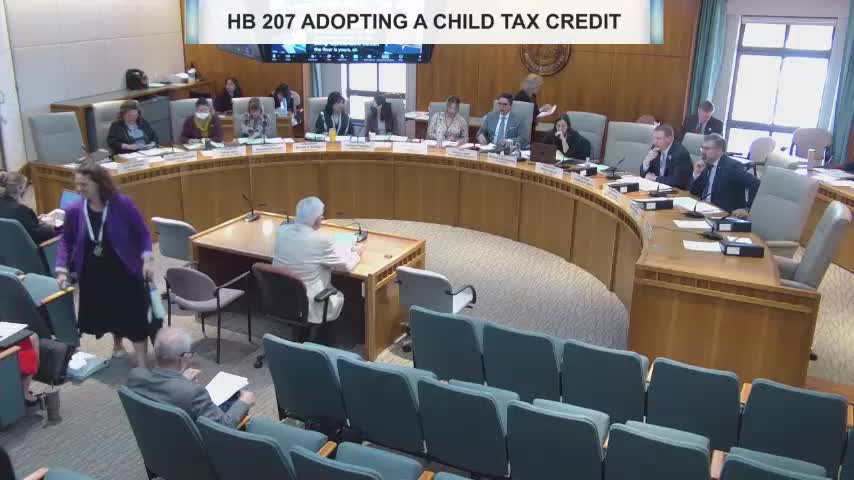Committee amends HB207 to reinstate special‑needs definition for adoption tax credit, then temporarily tables the bill
Get AI-powered insights, summaries, and transcripts
Subscribe
Summary
The committee approved an amendment to HB207 that restores a statutory definition for “special needs child” and reinstates an incentive for special‑needs adoptions; members discussed fiscal impacts (FY26 estimate range ~ $9.2M–$19.2M) and then temporarily tabled the bill for further work, including possible sunset or one‑time credit proposals.
The House Revenue & Taxation Committee on March 1 amended House Bill 207 to restore a statutory definition of a “special needs child” and to preserve the additional incentive within the adoption tax credit for special‑needs adoptions. After debate about fiscal impact and program design, members voted to temporarily table the bill.
Representatives and witnesses said the amendment was developed after consultations with disability advocates and reinstates the special‑needs definition that previously existed in statute. Jim Jackson of the Disability Coalition told the committee the definition came from current statute and was reinstated to avoid eliminating the incentive to adopt children with special needs. Jackson said the definition may not be perfect but reflected existing statutory language.
Members questioned whether the tax credit should be a recurring annual credit or a one‑time payment. Representative Chandler asked whether the $5,000 credit is recurring; the sponsor’s representative said she believed it is recurring. Committee discussion also focused on the bill’s fiscal impact. A fiscal-impact report cited in the hearing gave a FY26 estimate range of roughly $9.2 million to $19.2 million and noted increases in later years; sponsors and members noted the program’s cost would escalate in future fiscal years.
Supporters argued the credit helps place children from foster care into permanent families and provides additional resources for families who adopt children with higher needs. Representative Terrazas cited placement statistics—roughly 297 adoptions a year and roughly 1,800–2,000 children in foster care—to support the policy rationale. Opponents and some members raised affordability and distributional concerns and suggested alternatives such as a sunset provision or making the credit a one‑time payment to limit long‑term cost.
After adopting the amendment and discussing possible changes (including sunset language and one‑time versus recurring credits), the committee voted to temporarily table HB207 so sponsors can return with further refinements. The tabling motion passed by voice vote; a roll‑call tally was not recorded in the transcript.
